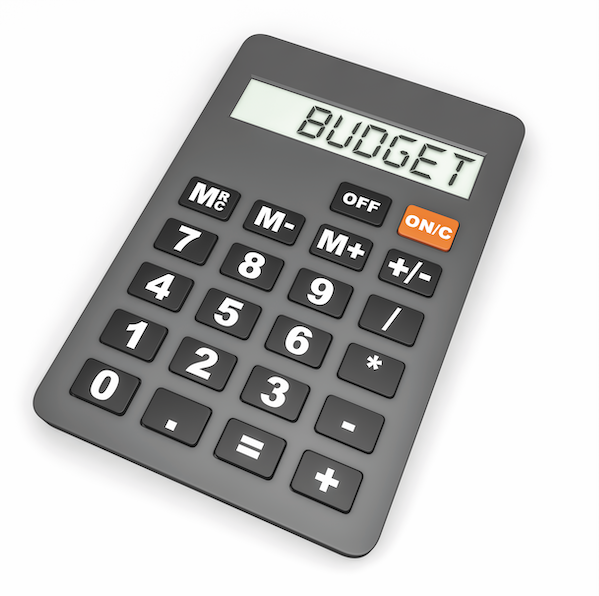In his first Budget as Chancellor of the Exchequer, Rishi Sunak sought to tackle both the issues caused by the effect of the Coronavirus in the UK, announcing £12bn of spending to counter Covid-19 outbreak, as well as tax issues, such as the effect of the tapered annual allowance on the NHS service.
In respects of the latter, he unveiled plans to raise the point at which tapering of the pensions annual allowance starts by £90,000 to £200,000 from April.
The new rule means anyone with income under £200,000 will not be affected by the tapered annual allowance, which has been accused of preventing senior NHS workers from taking on more shifts for fear of incurring additional tax charges.
Sunak said the move would mean 98% of NHS professionals will be unaffected by the controversial allowance.
Jamie Jenkins, head of global savings policy, Standard Life, welcomed the news, stating it “should alleviate the issue that was affecting medical professionals at this critical time,” but others argued that it did not go far enough and the Chancellor had missed the opportunity to simplify the pensions tax system.
Clare Moffat, head of business development, Royal London, said: ““The pension tax system remains overly complex. In reality the Chancellor has missed the ideal opportunity to massively simplify the system by removing the taper altogether.”
Nilesh Shah, specialist, executive pensions, Barnett Waddingham added: “Tinkering around the edges of pensions taxation is not going to solve the issues. The government has not gone far enough to ‘get this done’. While some of the high earners will see their AA tax bills reduced by up to £13,500 net, four years after its introduction the complexities are still there. The chancellor should have got rid of the complex TAA.”
The Chancellor also announced plans to reduce the minimum annual allowance to £4,000 for those with incomes above £300,000, which was met with criticism from industry experts, who said ongoing tinkering could damage confidence in pensions.
Steven Cameron, pensions director, Aegon, said: “For those earnings above £300,000, an annual allowance of just £4,000 surely makes pensions redundant for them.”
The change applies across all occupations and not just to NHS professionals, avoiding making pensions allowances occupation specific.
“Unfortunately, simply moving the thresholds misses the opportunity to start to simplify the fiendishly complex system of pension limits and allowances. This may be something the Chancellor returns to in a future Budget, ideally as part of a wider consultation on how to reform pension tax reliefs.”
Jessica List, pension technical manager, Curtis Banks, added: “It feels like a measure which won’t materially affect the overall tax relief bill but will further erode people’s trust in terms of ongoing tinkering with the pension rules.”
Net pay pensions – consultation
Chancellor Sunak used the Budget as an opportunity to announce a review into net pay pension schemes, which have left 1.7 million low-earners missing out on pensions tax relief.
Cameron welcomed a review but expressed disappointment that the anomaly was unlikely to be fixed for another year.
He said: “We’re pleased that the Budget mentions one of the greatest injustices in the pensions tax relief system, which currently means low earners who are not paying income tax in certain ‘net pay’ workplace pension schemes are not receiving the 20% tax relief on their pension contributions to which they are entitled.
“However rather than introducing an immediate remedy, the Government is to issue a consultation which means this is unlikely to be sorted before April 2021 as implementing change in the tax year would be highly problematic. This means low earners face another year in which their pension contributions will be losing out on tax relief which is one of the main benefits of pension saving.”
Helen Morrissey, pension specialist, Royal London, said the issues around schemes operating net pay arrangements had been kicked into the long grass. “For too long, there have been too many low earners, a large proportion of which are women, losing out on valuable tax relief just because of how their scheme is administered. It is positive to see the Government is committed to reviewing options with a call for evidence to be issued soon – but we need to see action on this.”
Junior ISA allowance increased
The Budget sought to give parents saving for their children’s future a boost, as the Chancellor more than doubled the annual amount that can be invested in a junior ISA.
From April 6, parents will be able to save £9,000 a year, up from the current £4,368. It marks the biggest jump in the allowance since the Junior ISA was introduced in 2011 when it replaced Child Trust Funds. However, those who still hold a CTF from before will also benefit from the significant increase.
Laura Suter, personal finance analyst, AJ Bell, said: “The increase in allowance means a parent starting next month for a newborn child could build a tax-free pot of more than £240,000 by the time their child reaches 18, assuming they put the maximum in each year and it grows by 4% every year after charges.”
However, Suter added that with the average saving per account being less than £1,000 it’s unlikely to be a boost many households will use.
“The move to hike the Junior ISA allowance but keep the main ISA and Lifetime ISA rates the same means it only benefits a smaller group of people – making the move cheaper for the Government.”
Rachael Griffin, tax and financial planning expert, Quilter, said: “All young people should be able to start their adult lives with a healthy pot of savings to invest in their future.”
Griffin said that while Junior ISA holders will be pleased by the news, it may be overlooked by CTF holders, with many parents having forgotten about accounts since they were scrapped.
She added: “It would be wise for the government to raise awareness of the funds and the increased subscription limit to ensure that parents are making the most of the tax-efficient savings on offer for their children. The increased subscription limit will build on the government’s recent decision to allow Junior ISA holders to switch to adult ISAs at maturity and should help considerably in encouraging long-term savings habits amongst young adults.”
Darius McDermott, managing director, FundCalibre said the increase came as a “positive surprise.” According to McDermott, investing £750 a month over a period of 18 years could result in enough money not only to fund university fees, but go towards the purchase of a first home.
He said: “Assuming 5% annual returns, an overall investment of £162,000 would grow to a pot of money worth £261,901. It could make a very secure financial future for some children. Admittedly, few people could afford to save this amount of money for their children year in, year out but it does give us all something to which we can aspire.”
National Insurance and Capital Gains
(continued over)
Page: 1 2



































